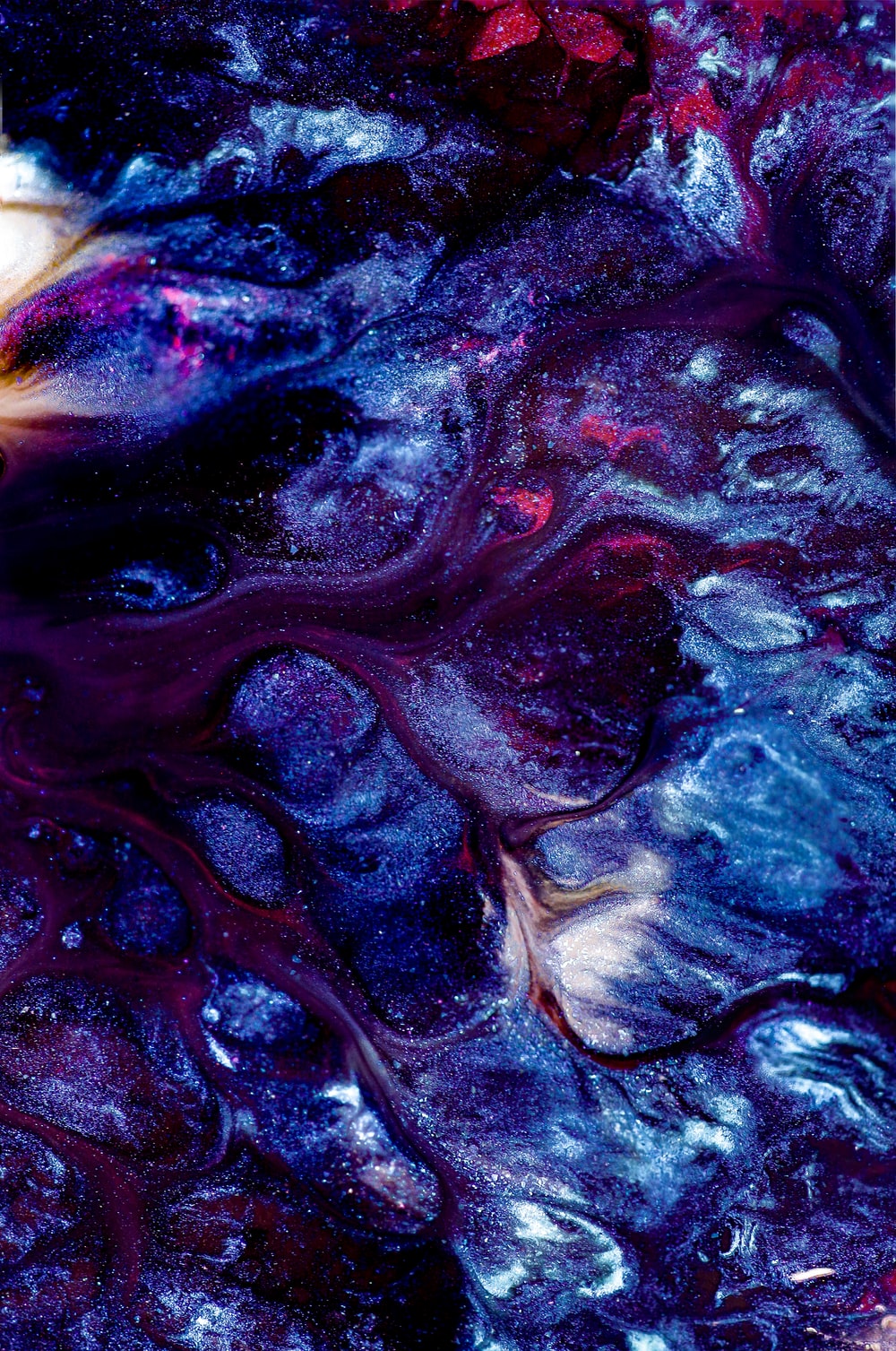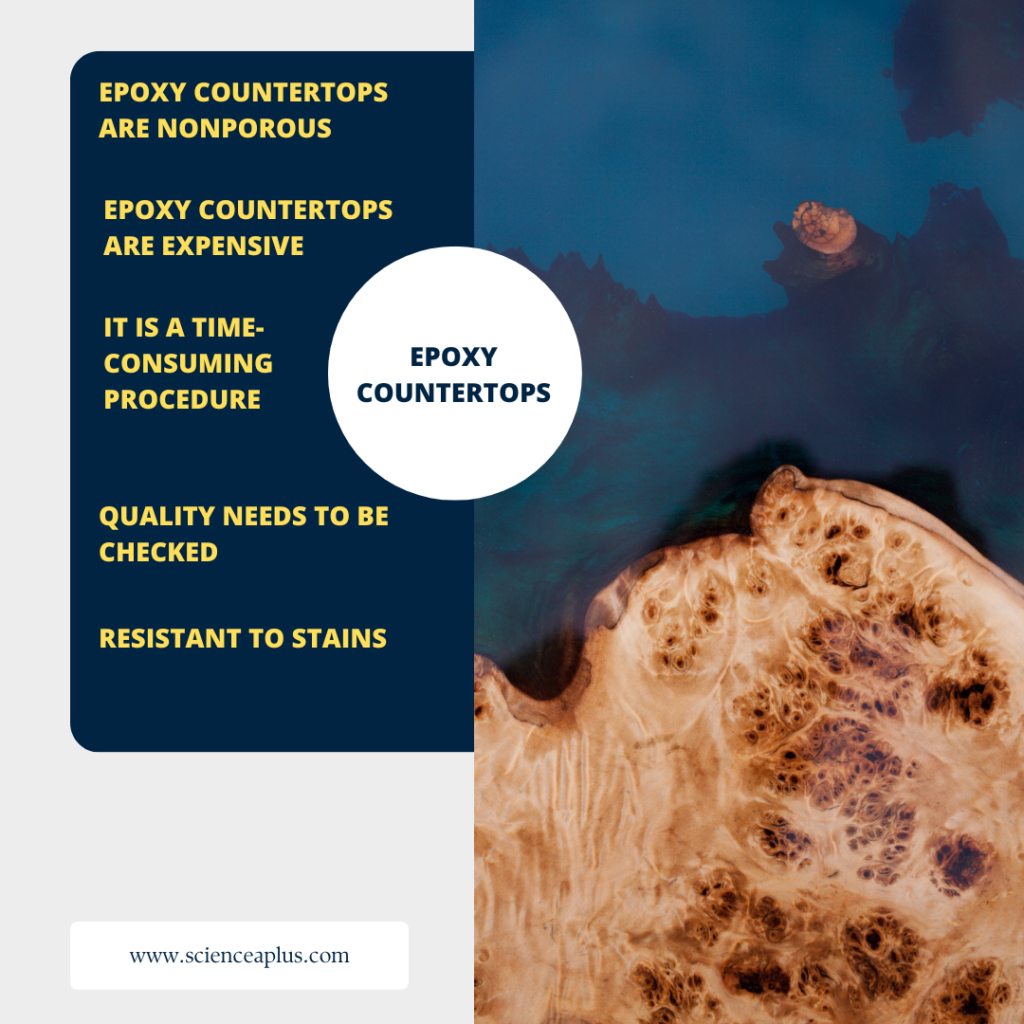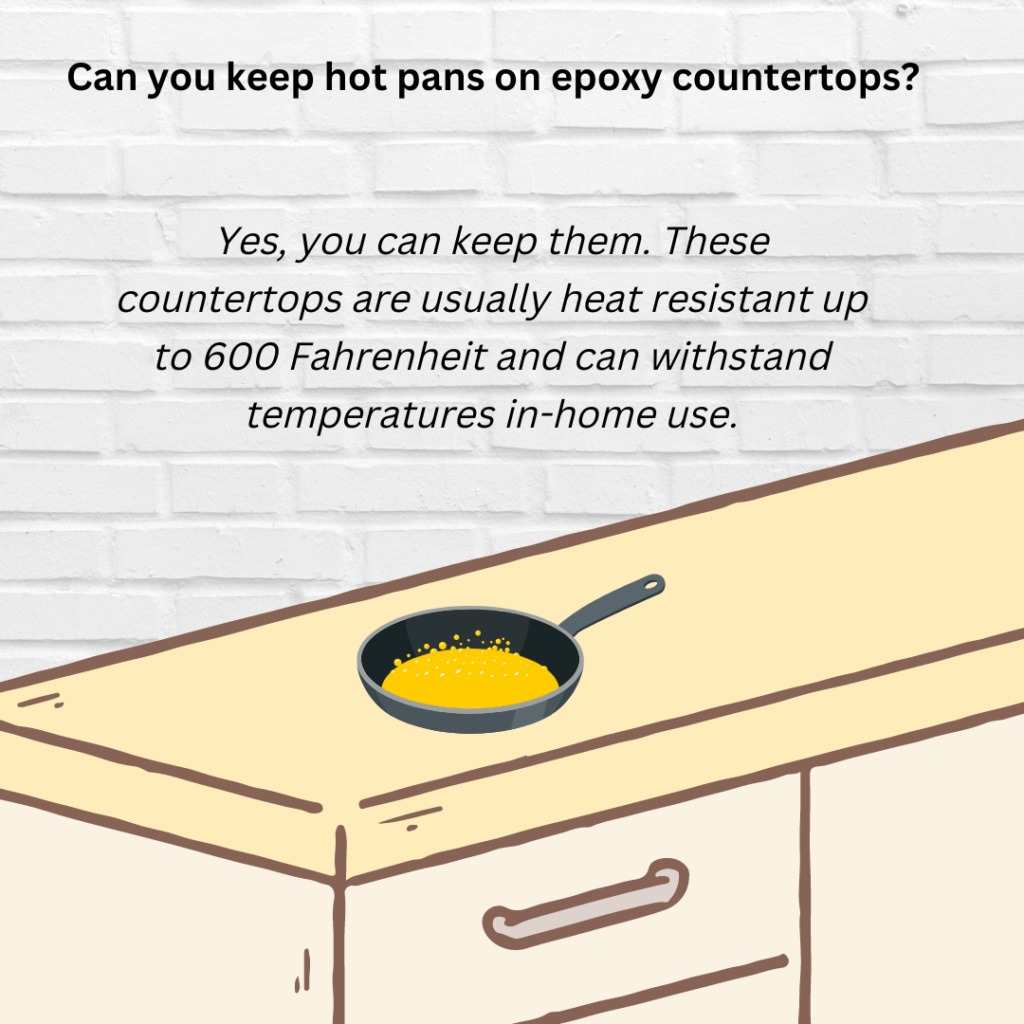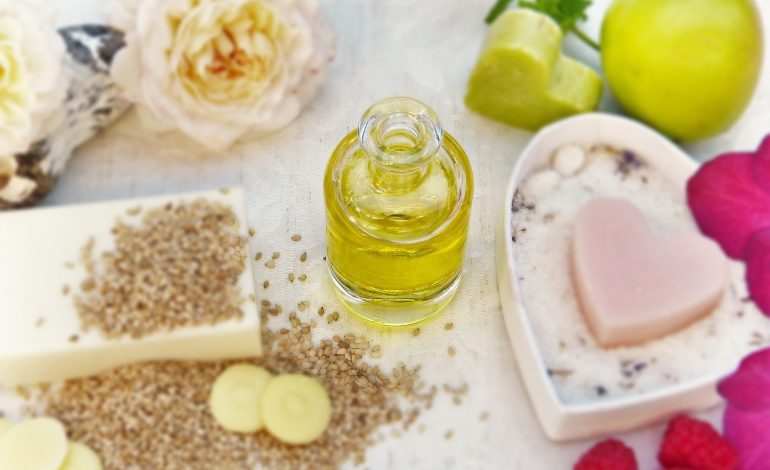
Image Source: Unsplash
If you’re considering epoxy countertops, there are a few things you need to know. These countertops are completely different from their concrete counterparts, which makes them an excellent alternative to them. Here’s more information on why they’re so popular, along with some disadvantages of having them in your home.
Why Use Epoxy Countertops? Epoxy countertops offer many benefits that make them a popular alternative to standard solid surfaces inside homes. They’re nonporous and resistant to stains, so they look great for years without needing any additional care. They come in many different finishes and patterns that help give a home a uniform appearance. These countertops have several disadvantages as well though.
Epoxy Countertops Are Nonporous
Epoxy countertops are quite unique compared to other types of countertops. They are not simply made up of a base and topcoat — no, these are separate pieces that are chosen for their unique properties. The base is made from a polymer that is resistant to bacteria, water, and various chemicals, while the topcoat is a synthetic Latex that easily adheres to the countertop and does not leach into the food or drink being stored on it.
This means that these countertops are significantly less likely to stain than other countertops, and they are also less likely to cause plumbing issues. Because they are not made from natural materials, it is important to choose a material that is durable, water-resistant, and moisture-resistant. Ideally, it would be a material that was non-toxic, fire-resistant, and chemical-resistant.
Well, if these epoxy countertops are not properly applied the true quality and the advantages cannot be produced in each and every home. Therefore, you will have to consult an experienced manufacturer in the process which can be difficult at times.
Epoxy Countertops Are More Expensive
One of the benefits of epoxy countertops is their cost. They are a bit more expensive than other types of countertops, but they are definitely worth the money. They are non-toxic, fire-proof, and leak-proof, and they can be used in a variety of applications. These countertops also have excellent weather resistance and are highly durable. They can withstand high temperatures, heavy use, and years of neglect. These attributes make these countertops ideal for many applications in a home — including bathrooms, kitchens, and outdoor areas.
They are also expensive to install, as they require special adhesives and sealants. Because they are expensive and difficult to install, they are not very common in the average home.
It is a time-consuming procedure
Epoxy countertops take some time in the process of application. Compared to other types of countertops, epoxy needs special machines, skilled laborers, and time for proper application.
This can be a disadvantage if you have a limited time to upgrade or install your new products. There are several steps that needed to be done by experts to properly install the countertop.
Quality needs to be checked
Epoxy can be made from poor-quality substances. If the epoxy is of bad quality so as your countertops would be. This can be somewhat tricky. But you need to know which epoxy is of premium quality.
The variation in quality has become a disadvantage. Since inexperienced workers may use poor quality material it is better to consult experienced workers in the industry to overcome this disadvantage of epoxy countertops.
Are Epoxy Countertops Resistant to Stains?
One of the things that make epoxy countertops so attractive is their resistance to stains. These countertops come in many different finishes, so they will match most kitchen cabinets, countertops, and showers. Some of the more common stains that epoxy countertops are sturdily immune to are coffee, milk, wine, orange juice, dark red wine, and blood. These countertops are also stain-resistant when installed correctly.
When selecting an epoxy product, there are a few factors to consider:

1. The viscosity of the epoxy itself. It’s important to go for a thick, heavy-duty formula that doesn’t run or drool in humid conditions.
2. The quality of the ingredients. Look for products that are free of harmful additives like lead and formaldehyde. Avoid products that contain petroleum distillates, which can cause allergic reactions and lung disease.
3. The compatibility of the product with your project materials. An epoxy product that is poorly adhered to your non-stick surface will not withstand heavy use and will eventually wear through the finish on your cookware.
4. The results you expect from the application. For example, if you’re using an epoxy product as a sealant on a cast iron pan, you might want a stronger bond than the one you apply to plastic utensils.
Are epoxy countertops hard to clean?
No, Epoxy countertops are easy to clean due to their non-porous nature and other specific characteristics.
Can you keep hot pans on epoxy countertops?

Yes, you can keep them. These countertops are usually heat resistant up to 600 Fahrenheit and can withstand temperatures in-home use.
Conclusion
Epoxy countertops are great for a variety of applications in a home. They are non-porous, stain resistant, and water-proof, and they are also easy to install and maintain. However, there are a few things you should know about this type of countertop. First, they are not cheap. You will need to decide if the price is worth it for the benefit you receive. Also, make sure that you know how to properly install them.
There are many different types of epoxies on the market, and each type has its own unique properties. Different types of epoxies have different levels of durability, adhesion strength, and chemical resistance. It is important to choose an epoxy product that meets your needs.


